Events
While we do our best to maintain accurate and up-to-date event information, it is a good idea to confirm location and time with the sponsoring organization.
If you have an event you would like to share, please email us at: gastronomyatbu@gmail.com.
2019 Pepin Lecture Series
Programs in the Pépin Lecture Series in Food Studies & Gastronomy are free and open to the public, but registration is requested. All lectures begin at 6 PM and will be held in room 313 of BU’s College of Arts and Science Building, 725 Commonwealth Avenue, Boston, MA.
Fall 2019 lectures
We Will Feast: Rethinking Dinner, Worship, and the Community of God
With author Kendall Vanderslice
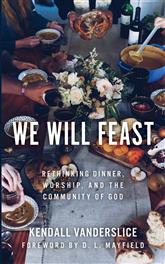
The gospel story is filled with meals. It opens in a garden and ends in a feast. Records of the early church suggest that believers met for worship primarily through eating meals. Over time, though, churches have lost focus on the centrality of food– and with it a powerful tool for unifying Christ’s diverse body.
But today a new movement is under way, bringing Christians of every denomination, age, race, and sexual orientation together around dinner tables. Men and women nervous about stepping through church doors are finding God in new ways as they eat together. Kendall Vanderslice shares stories of churches worshiping around the table, introducing readers to the rising contemporary dinner-church movement. We Will Feast provides vision and inspiration to readers longing to experience community in a real, physical way.
Kendall Vanderslice is a graduate of the BU Gastronomy Program and has recently received her MA in Theological Studies from Duke University.
Friday, September 20 at 6 PM
College of General Studies, 871 Commonwealth Avenue, Boston MA, room 505
Meat Planet: Artificial Flesh and the Future of Food
With author Benjamin Aldes Wurgaft
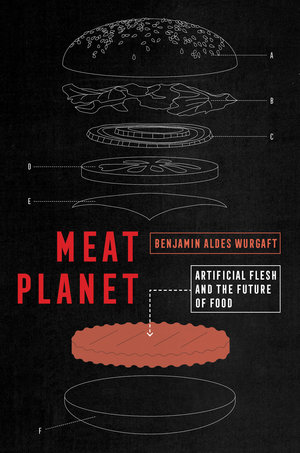
In 2013 a Dutch scientist unveiled the world’s first laboratory-created hamburger, and since then the idea of producing meat, not from live animals but from carefully cultured tissues, has spread like wildfire through the media. Meanwhile, cultured meat researchers race against population growth and climate change in an effort to make sustainable protein. Meat Planet explores the quest to generate meat in the lab—a substance sometimes called “cultured meat”—and asks what it means to imagine that this is the future of food.
Benjamin Aldes Wurgaft is a writer and historian, and currently a Visiting Scholar in Anthropology at MIT. He was a National Science Foundation Postdoctoral Fellow at MIT and a Mellon Postdoctoral Fellow at the New School for Social Research. His essays on food and other topics appear regularly in publications from Gastronomica to the Los Angeles Review of Books to the Hedgehog Review
Thursday, October 10, 2019 at 6 PM
College of General Studies, 871 Commonwealth Avenue, Boston MA, room 505
Vanishing Bees: Science, Politics, and Honeybee Health
With author Daniel Kleinman Thursday
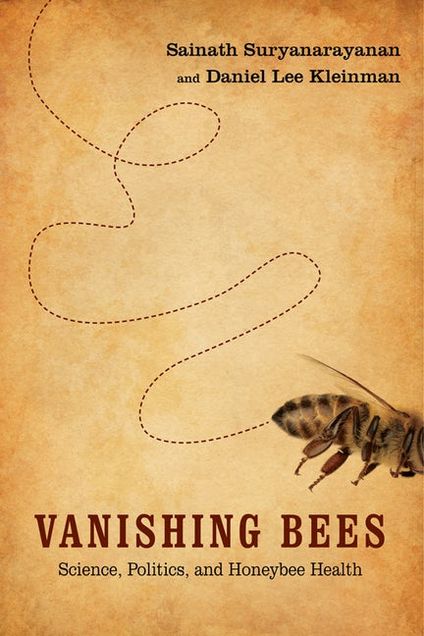
Vanishing Bees takes us inside the debates over widespread honeybee deaths, introducing the various groups with a stake in solving the mystery of Colony Collapse Disorder, including beekeepers, entomologists, growers, agrichemical companies, and government regulators. Drawing from extensive interviews and first-hand observations, Sainath Suryanarayanan and Daniel Lee Kleinman examine how members of each group have acquired, disseminated, and evaluated knowledge about CCD. In addition, they explore the often-contentious interactions among different groups, detailing how they assert authority, gain trust, and build alliances.
Daniel Kleinman is the Associate Provost for Graduate Affairs in the Office of the Provost and Professor of Sociology in the College of Arts & Sciences.
This program will be complemented by a honey-based tasting prepared by Chef Janine Sciarappa.
Thursday, October 24 at 6 PM
Fuller Building, 808 Commonwealth Avenue, Boston MA, room 117
Food Routes: Growing Bananas in Iceland and Other Tales from the Logistics of Eating
With author Dr. Robyn Metcalfe
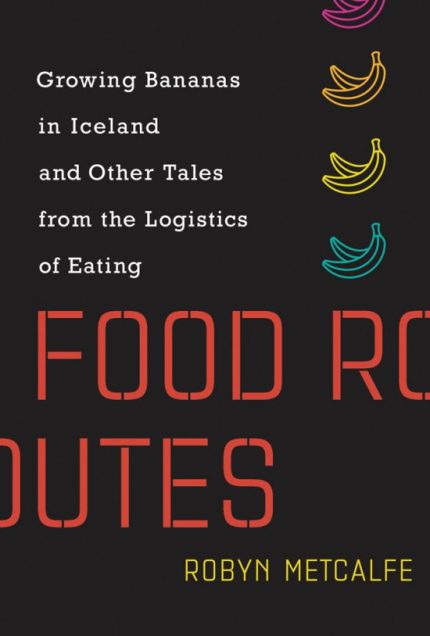
Even if we think we know a lot about good and healthy food—even if we buy organic, believe in slow food, and read Eater—we probably don’t know much about how food gets to the table. What happens between the farm and the kitchen? Why are all avocados from Mexico? Why does a restaurant in Maine order lamb from New Zealand? In Food Routes, Robyn Metcalfe explores an often-overlooked aspect of the global food system: how food moves from producer to consumer. She finds that the food supply chain is adapting to our increasingly complex demands for both personalization and convenience—but, she says, it won’t be an easy ride.
Robyn Metcalfe, a food historian and food futurist, is a Lecturer and Research Scholar at the University of Texas at Austin and Director of Food+City. She holds a PhD in history from Boston University.
Tuesday, November 5 at 6 PM
College of General Studies, 871 Commonwealth Avenue, Boston MA, room 505
Spring 2019 lectures
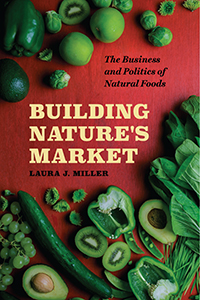
Building Nature’s Market: The Business and Politics of Natural Foods
Laura Miller, Associate Professor of Sociology, Brandeis University
Wednesday, March 6, CAS 313
Building Nature’s Market shows how the meaning of natural foods was transformed as they changed from a culturally marginal, religiously inspired set of ideas and practices valorizing asceticism to a bohemian lifestyle to a mainstream consumer choice. Laura J. Miller argues that the key to understanding this transformation is to recognize the leadership of the natural foods industry. Rather than a simple tale of cooptation by market forces, Miller contends the participation of business interests encouraged the natural foods movement to be guided by a radical skepticism of established cultural authority. She challenges assumptions that private enterprise is always aligned with social elites, instead arguing that profit-minded entities can make common cause with and even lead citizens in advocating for broad-based social and cultural change.

The Physics of Food and Cooking
Professors Karl Ludwig and Rama Bansil, Boston University Physics Department
Tuesday, March 19, CAS 313
Professors Ludwig and Bansil teach The Physics of Food and Cooking at Boston University. The course explores physical science concepts of thermal / soft matter physics and molecular biophysics such as phase transitions and gelation, viscosity, elasticity illustrated via cooking. Class activities and labs demonstrate molecular gastronomy methods of sous-vide cooking, pressure cooking, making desserts, cheese, emulsions, foams, gels, and ice creams.
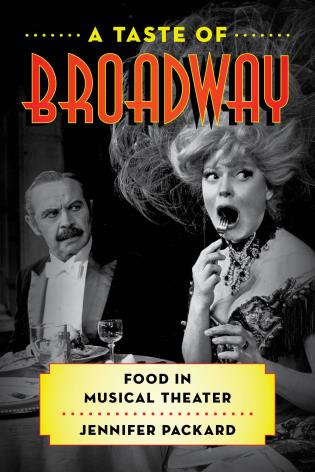
A Taste of Broadway: Food in Musical Theater
Jennifer Packard, MLA in Gastronomy, author of A Taste of Broadway: Food in Musical Theater
Thursday, April 4, CAS 313
Beyond being just fuel for the body, food carries symbolic importance used to define individuals, situations, and places, making it an ideal communication tool. In musical theater, food can be used as a shortcut to tell the audience more about a setting, character, or situation. Because everyone relates to eating, food can also be used to evoke empathy, amusement, or shock from the audience. In some cases, food is central to show’s plot. This book looks at popular musical theater shows to examine which foods are used, how they are used, why they are important, and how the food or usage relates to the broader world. Included are recipes for many of the foods that are significant in the shows discussed.
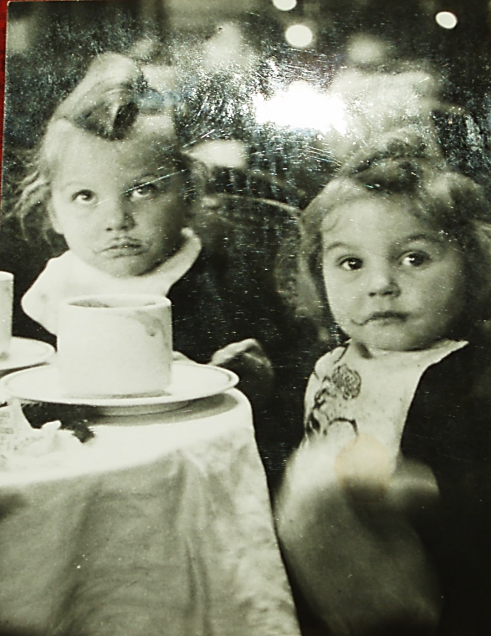
Feeding Europe under British Rationing: Relief Efforts for the Continent after the Second World War
Kelly Spring, Food Historian and Visiting Professor, University of Southern Maine
Thursday, April 18, CAS 313
This research examines the complexities of Britain’s post-war position through the lens of its food relief to Europe. Specifically, it investigates the relief efforts of the Council of British Societies for Relief Abroad, which worked with the British government, the UNRRA and voluntary societies to feed the women and children of Europe, particularly those living in Germany and Austria. It demonstrates that relief initiatives shifted overtime in the contexts of domestic considerations, British foreign policies and international relations. This research offers an important, new perspective on Britain’s shifting transatlantic relations and tensions with the United States and Europe in the early days of the Cold War.